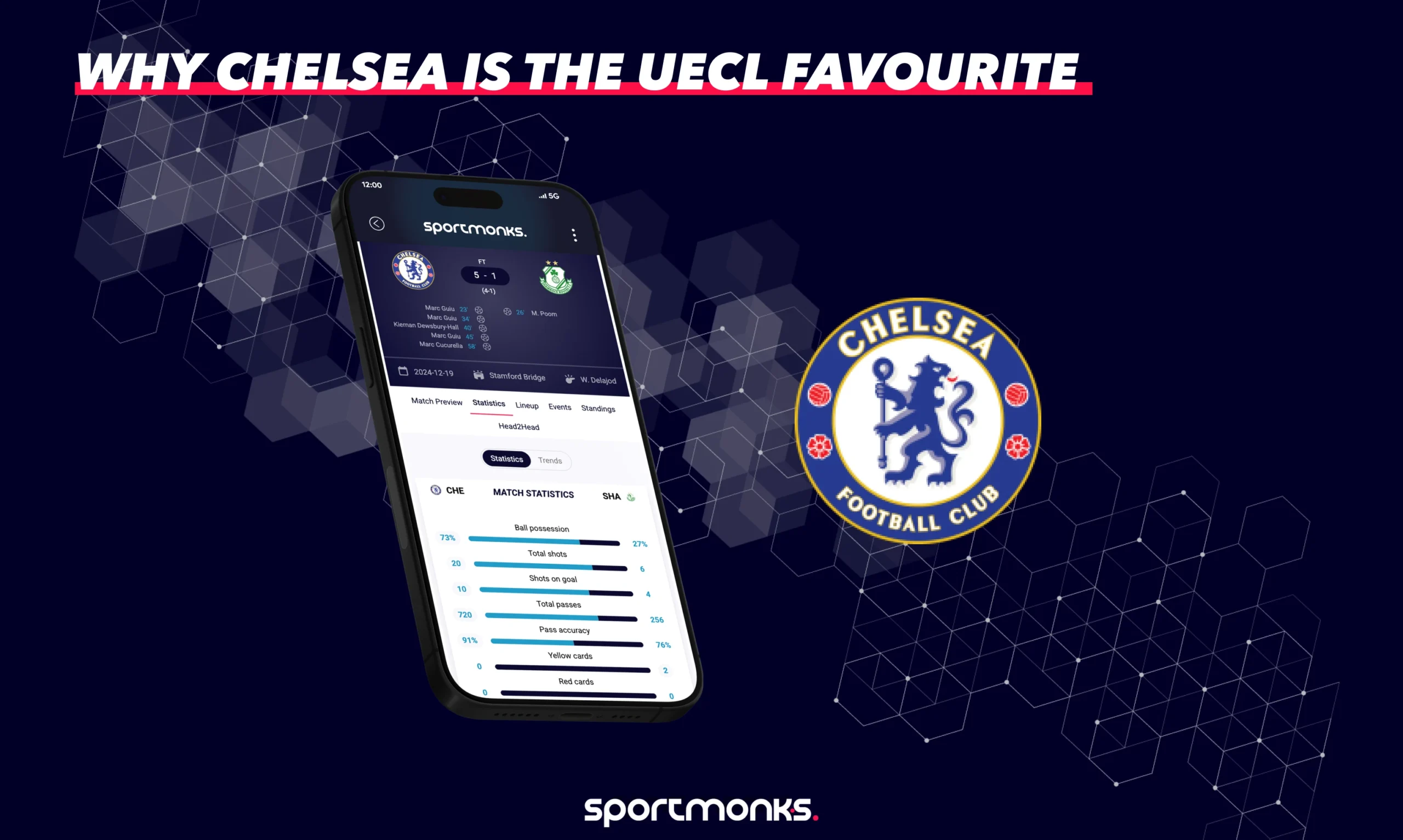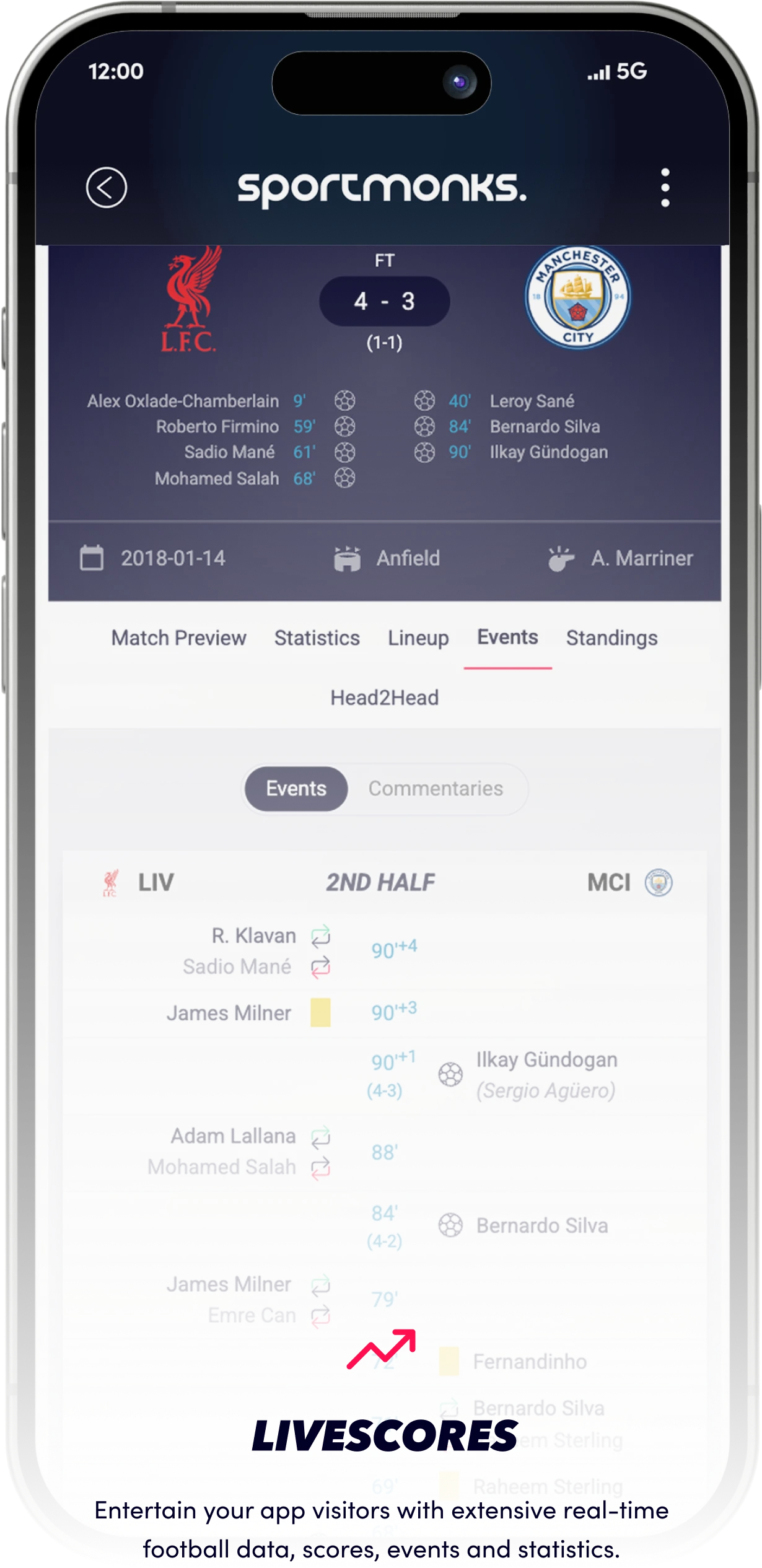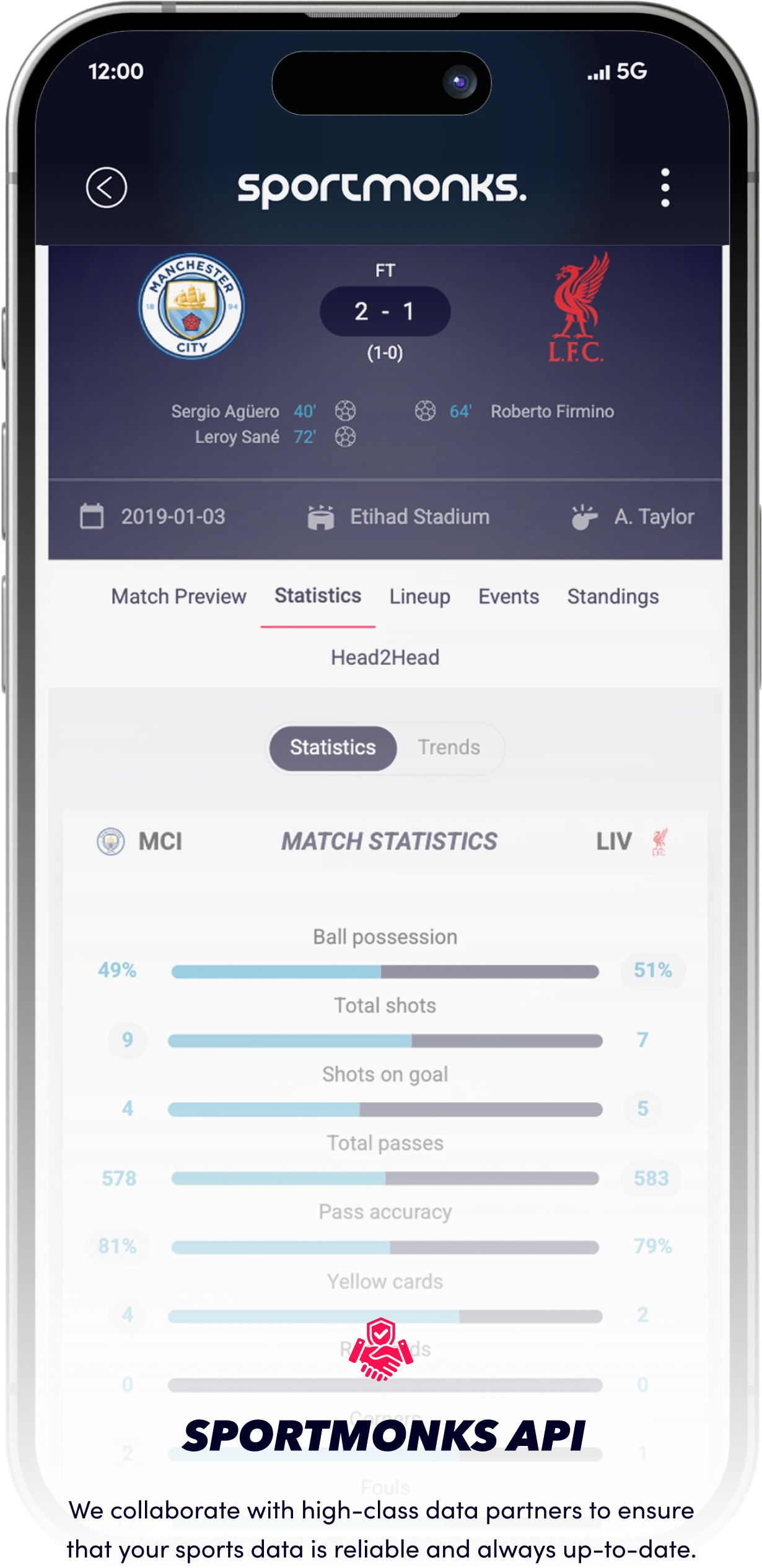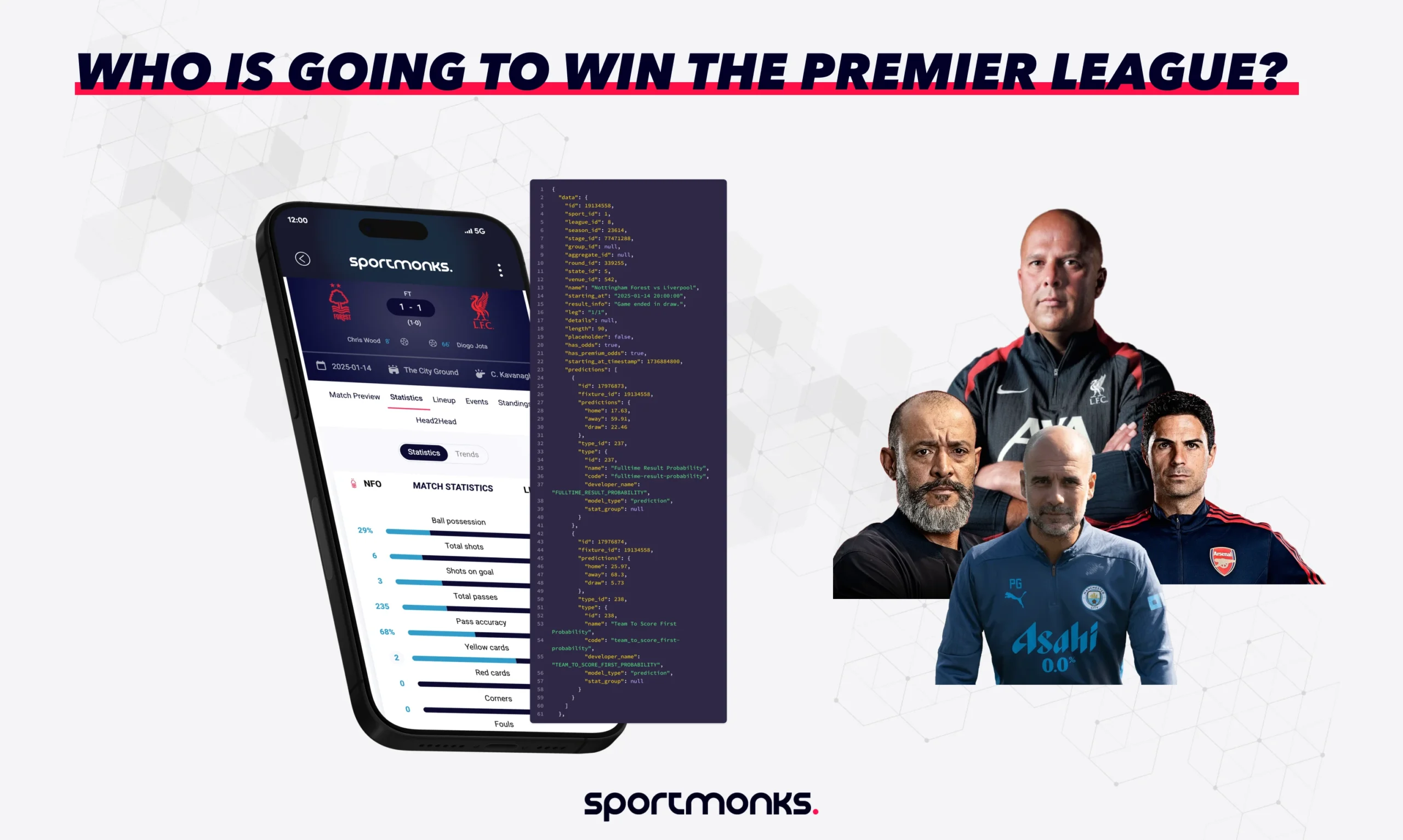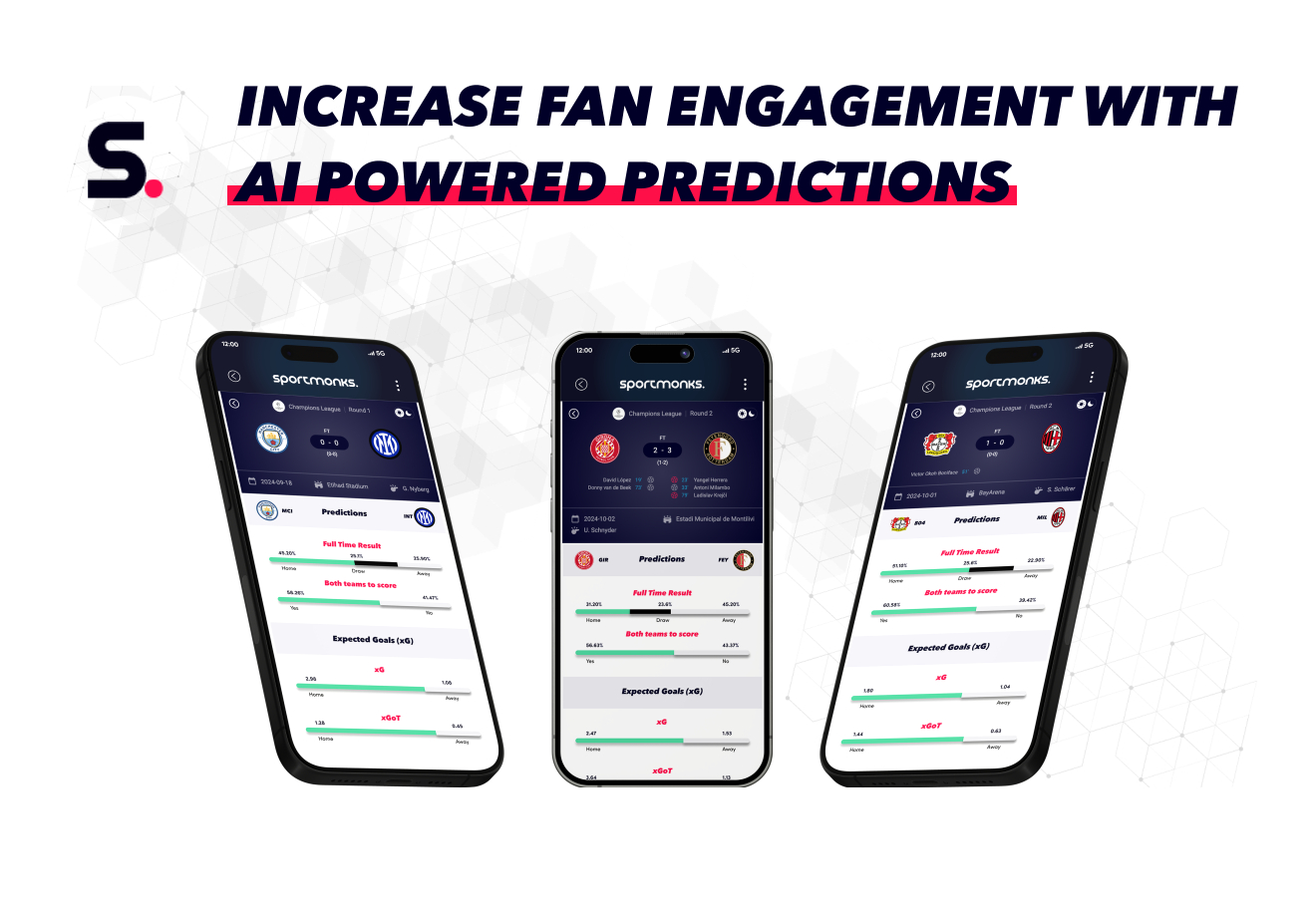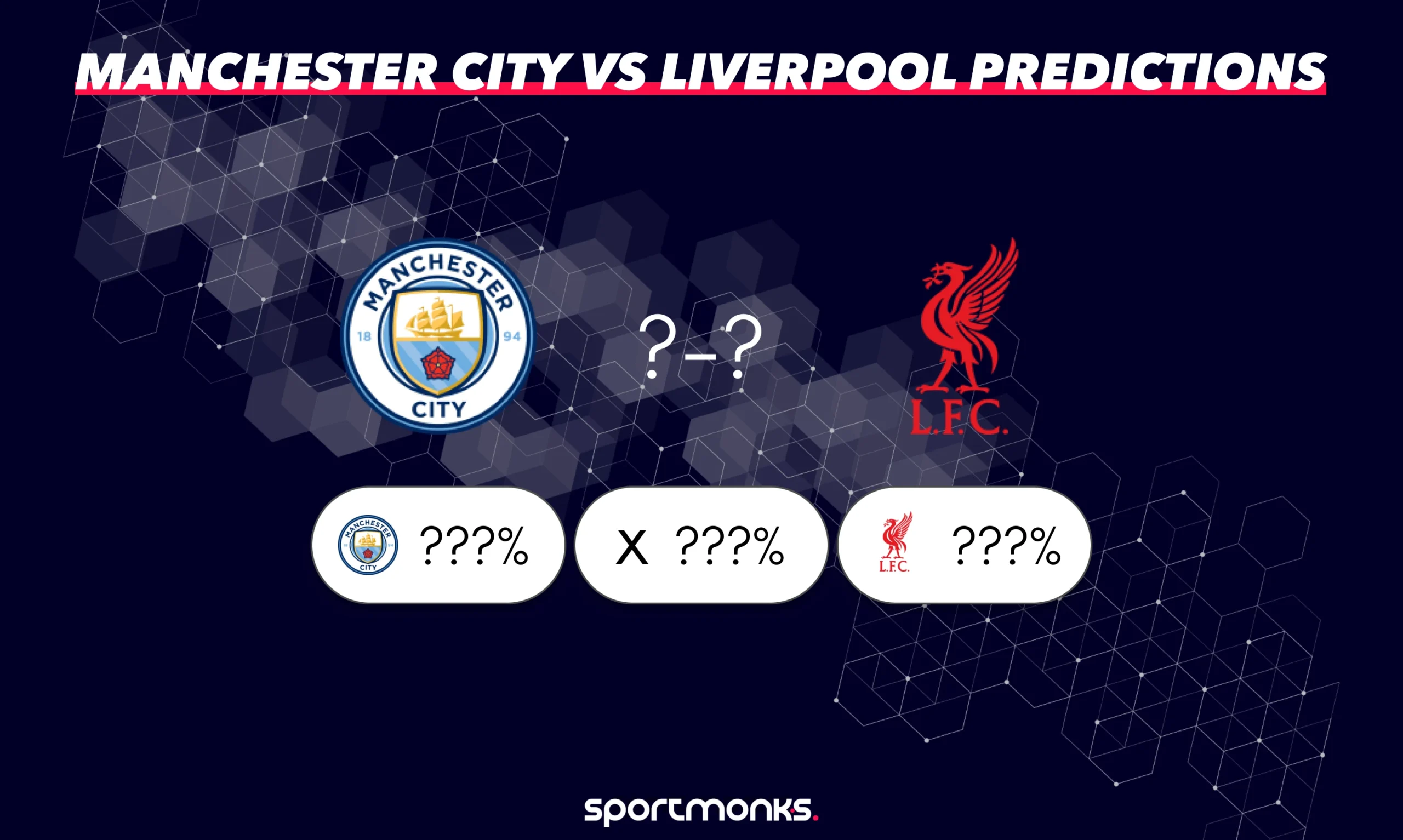
Contents
Football enthusiasts often dream of a comprehensive, data-driven prediction model, integrating crucial metrics like expected goals (xG), possession, shot accuracy, and defensive solidity. They crave real-time updates, adjusting pre-game predictions based on live player performance, substitutions, and tactical shifts.
However, football is notoriously unpredictable. Even the most advanced data can’t fully account for the emotional intensity and historical context of a rivalry like this. Some might argue that data overemphasises star players or oversimplifies the game, while others may assume it guarantees accurate predictions, neglecting football’s inherent unpredictability. But Sportmonks data offers a powerful tool for anyone seeking a deeper understanding of the game, enabling more informed betting decisions and predictions and a richer appreciation of its complexities.
This guide will analyse how Sportmonks data can be used to dissect key aspects of the Manchester City vs Liverpool clash, from player form and tactical systems to crucial game moments and potential game-changers.
Historical significance of the Manchester City vs. Liverpool Fixture
The modern-day rivalry between Manchester City and Liverpool has escalated into one of the Premier League’s most anticipated fixtures since the mid-2010s, with both teams regularly vying for the league title and making significant impacts in other competitions.
Liverpool’s Dominance
From 217 previous Premier League encounters, Liverpool holds a significant head-to-head advantage with 109 wins compared to Manchester City’s 60, with 58 matches ending in draws. This historical edge sets the backdrop for their intense rivalry within the context of the Premier League.
Historical fixtures
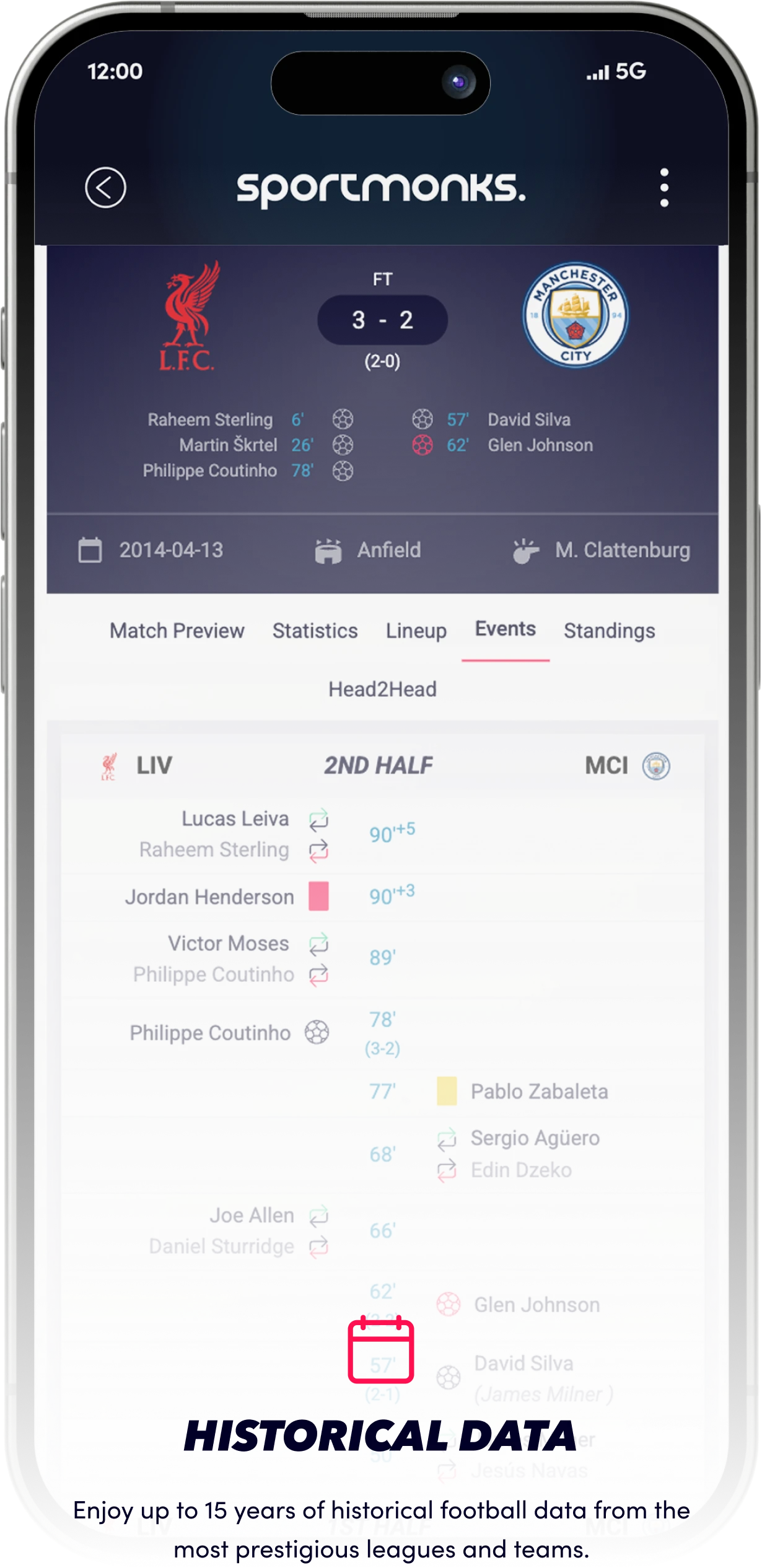
English Premier League 2013-14: Liverpool 3 – 2 Manchester City: Hope ignited, dreams shattered
This match was crucial in a tight three-way race for the Premier League title involving Liverpool, Manchester City, and Chelsea. Liverpool, under Brendan Rodgers, sat atop the table with only two games remaining. The 3-2 victory at Anfield was propelled by goals from Raheem Sterling, Philippe Coutinho, and Martin Skrtel, with Vincent Kompany and David Silva scoring for City. Despite this win, Liverpool’s title hopes were dashed after a late draw against Crystal Palace, allowing City to clinch the championship.
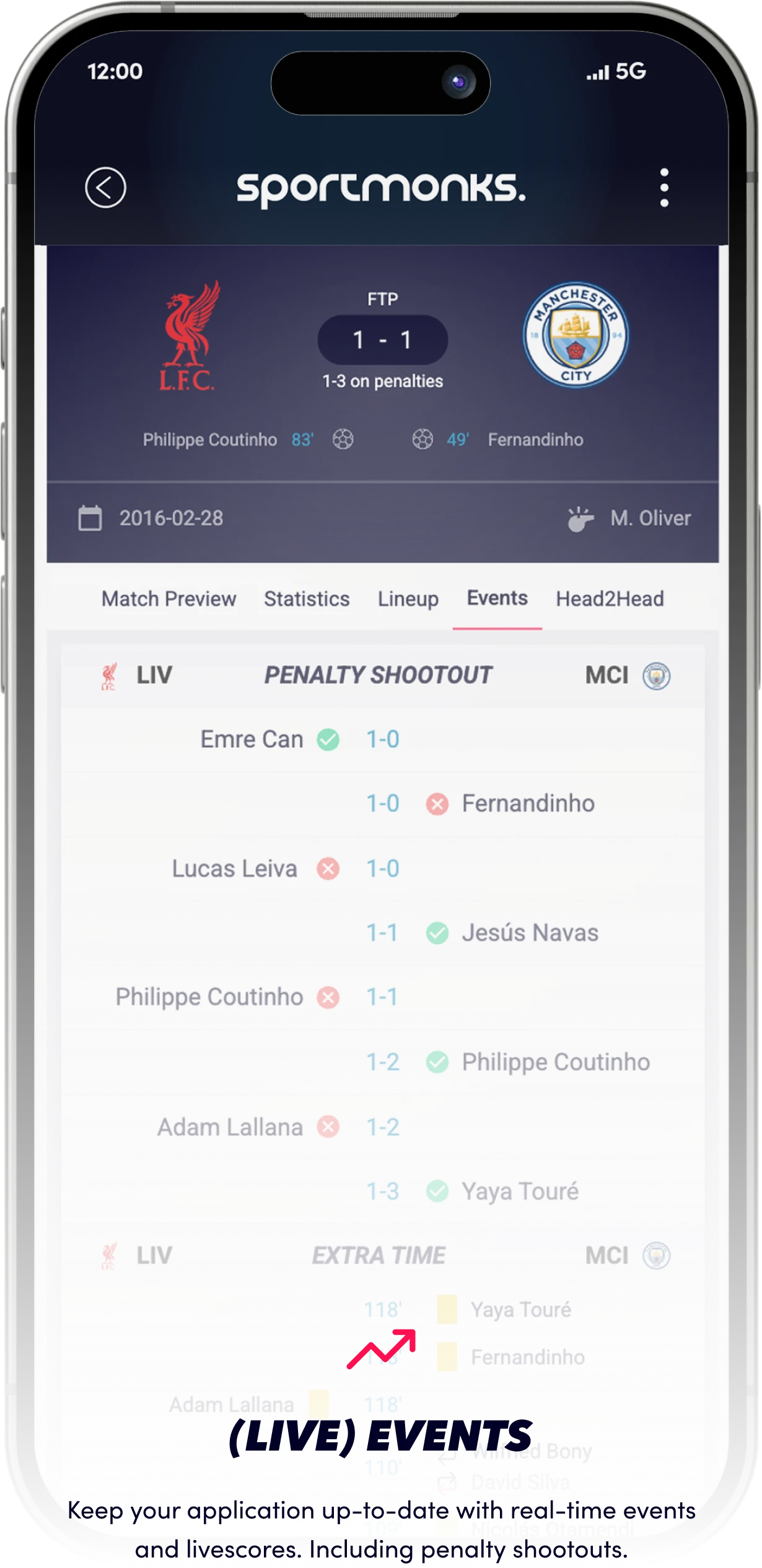
League Cup Final Manchester City 1 – 1 Liverpool (3-1 on penalties): Caballero’s heroics seal the cup
In Jurgen Klopp’s inaugural season with Liverpool, the teams clashed in the League Cup final at Wembley. The game ended in a 1-1 stalemate, with Philippe Coutinho scoring for Liverpool and Fernandinho for City. Manchester City emerged victorious in the penalty shootout, with Willy Caballero saving three penalties. This victory was a sign of things to come for City under Pep Guardiola’s upcoming tenure.
English Premier League 2017-18: Liverpool 4 – 3 Manchester City: Klopp’s attack hands City rare defeat
In a season where Manchester City was on course to break the Premier League points record, Liverpool delivered a stunning blow. Goals from Alex Oxlade-Chamberlain, Mohamed Salah, Sadio Mane, and Roberto Firmino in a mere nine minutes turned the game around after City took an early lead. This match showcased the firepower of Liverpool’s front three and highlighted City’s only significant domestic stumble that season.
English Premier League 2018-19: Manchester City 2 – 1 Liverpool: The title race’s defining moment
Arguably one of the most significant matches between these 2 teams. This match proved decisive in a season where Manchester City pipped Liverpool to the title by just one point. Goals from Sergio Agüero and Leroy Sané ensured City’s victory, with Roberto Firmino scoring for Liverpool. This game was part of a season where both teams set high points totals, with City finishing on 98 and Liverpool on 97. A bitter memory in the heart of every red fan. Liverpool fans did eventually get something off this season, as they went on to lift the UEFA Champions League trophy, beating fellow English team, Tottenham Hotspur.
English Premier League 2019-20: Liverpool 3-1 Manchester City: Champions in the making
In a match that showcased Liverpool’s dominance en route to their first Premier League title in 30 years, goals from Fabinho, Mohamed Salah, and Sadio Mane secured a 3-1 victory. This win moved Liverpool eight points clear at the top, underscoring their championship credentials.
English Premier League 2023-24 Manchester City 1 – 1 Liverpool: Stalemate in the title race
A late equalizer from Trent Alexander-Arnold salvaged a point for Liverpool at the Etihad Stadium. Erling Haaland scored his 50th Premier League goal in this match, but Liverpool’s resilience kept them in the title race. This draw reflected the ongoing competitiveness and high stakes of their encounters, and despite the result, the match was a spectacle for football fans from both teams.
Liverpool: A data-driven preview
Team Form and momentum
Liverpool’s form leading up to this match is quite impressive, having secured 3 wins and 2 draws in their last five Premier League games. They’ve notched up 11 goals while only conceding 4, which underscores their current attacking flair combined with a solid defensive foundation. This recent performance has earned them 11 points from a possible 15, and the current league standings show that they’re on top of the league. They have lost only 1 game all season (5 months and 5 days ago so far).
Key Player Performance
- Mohamed Salah has been in scintillating form this current season, bagging 21 goals and 13 assists in 23 games. His xG stands at a notable 14.32xG, his goals per match ratio is 0.91 g/m and his goal contribution statistics at a staggering 1.47 contributions per match . This demonstrates his ability to not just score goals but to create and complement his team mates very well. All this data can be easily obtained from our Football API.
- Cody Gakpo has seen his role promoted to more of a starter and often alternates between LWF and CF. Cody has had a good season so far, notching 8 goals and 3 assists in 23 games( 8 of which he had to come off the bench), and has already equaled his highest goal tally in a Liverpool shirt in 12 less games played.
Attacking Potency
According to Sportmonks’ Football API, Liverpool have registered a combined 54.79 xG this season, leading to 56 goals—comfortably outperforming expectations. Our API data also reveals key insights, such as their 2.66 goals per game average and their consistency in scoring, having found the net in 92.11% of their matches. The data further highlights a well-balanced goal distribution, with Liverpool scoring across all phases of the game: 7.14% in the opening 15 minutes, 10.71% from 15-30, 25% from 30-45 minutes, 14.29 % from 45-60 minutes, 21.43% from 60-75 minutes, and 21.43% in the closing stages (75-90 minutes).
Game Control
When they aren’t constantly laying siege to their opponents’ goal, they have shown that they can hold the ball quite well, averaging 58.1% of the ball. They also average around 531.7 passes a match, have a pass accuracy of 86% and have over 12,000 passes under their belt.
Defensive Approach
For a team so potent in attack, they are no slouches when it comes to getting back quickly into defensive shape to thwart an attacking threat. They have the best defence in the league, having only conceded 21 times (0.9 goals conceded per game). They also have the joint highest clean sheets in the league this season (tied with Nottingham for 10), have blocked over 100 shots and made only 3 errors leading to goals.
Tactical Approach
Under Jürgen Klopp’s successor, Arne Slot, Liverpool has continued with a high-pressing system that Klopp brought to the team as they attempt to win the ball back in the opponent’s half with a pressing success rate often above the league average. Their approach also involves quick transitions, utilizing the width provided by full-back like Alexander-Arnold, and leveraging Salah’s pace and movement in counter-attacks.
Manchester City: A data-driven preview
Team Form and Momentum
Manchester City’s form has been less consistent this season, managing 3 wins, 1 draw, and a heavy loss to Arsenal in their last five Premier League matches. They’ve scored 16 goals while conceding 9, reflecting a team that can still produce moments of brilliance but has shown vulnerabilities, particularly in defense, largely due to the absence of key defensive figures like Ruben Dias and Rodri. This has translated to 10 points from a possible 15. At this point last season, they had 53 points, 12 better than they do now, indicating a decline in performance and results.
Key Player Performance
- While he hasn’t been at his best, due to factors like poor defence and lack of supply, Erling Haaland is still a productive performer, with 19 goals and 2 assists in 24 games (2nd in the league). His goals per match ratio of 0.79 g/m and a goal contribution of 0.875 per match.
Phil Foden didn’t have the smoothest of starts this season, but has seemingly stabilized and found his rhythm. In his last 5 matches, he has recorded 6 goals and an assist to help city claim 10 points. - Joško Gvardiol is perhaps an unsung hero for City this season. His 5 goals have been crucial for City and the timing of those goals have made them more significant as well. For instance, he scored the go ahead goal against the Magpies in their draw, the equalizer against Wolves, the go ahead against United (albeit losing that one) and the equalizer against Chelsea. In addition to his attacking contributions, he has also been solid defensively, winning over 60% of his duels and completing his passes over 90% of the time, leading to less turnovers or errors leading to goals.
Attacking Potency
Man City have had a combined 44.65 xG so far this season, which has led them scoring 48 goals and mildly outperforming their xG, and also hinting at a bit of wastefulness on their part. They have averaged 2.00 goals per game, shot 402 times, 145 of those being on target and giving them a 36% shot accuracy. They have also created 61 big chances.
Game Control
Despite being very prone to the counter, turnovers and conceding, City still have the identity of a Pep Guardiola team, in that they still keep the ball well with an average of 61% have shown that they can hold the ball quite well. They also average around 593.58 passes a match, have a pass accuracy of 90% and have over 14,000 passes so far this season.
Defensive Approach
City’s defence has been the main source of their woes this season as they’ve struggled to fill Rodri’s void who anchored their defensive midfield, and with his absence due to an ACL injury brought instability playing out from the back and transitioning from the middle of the park. They’ve also had a lot of injury problems with players Ederson, their main goal keeper playing only 15 matches this season so far. With all these changes, City have had to improvise and alternate between a 4-2-3-1, 4-1-4-1 and a 3-2-4-1 approach, fielding players like Kovacic and Gundogan in a double pivot to help patch up the defence.
Their defence has been leaky so far, conceding 35 goals in 24 matches (1.46 gc/m). These stats become a truer reflection as they have only 5 clean sheets this season.
Tactical Approach
Under Pep Guardiola, Manchester City has continued to employ a possession-based, high-pressing game, aiming to dominate games from start to finish. Their approach involves intricate passing patterns, often involving players like Bernardo Silva and Kovacic in midfield to control the tempo. City’s strategy includes overloading one side of the pitch to create space on the other, with wingers like Foden or Jeremy Doku crucial in the final third to either score or get the ball to Haaland in dangerous positions.
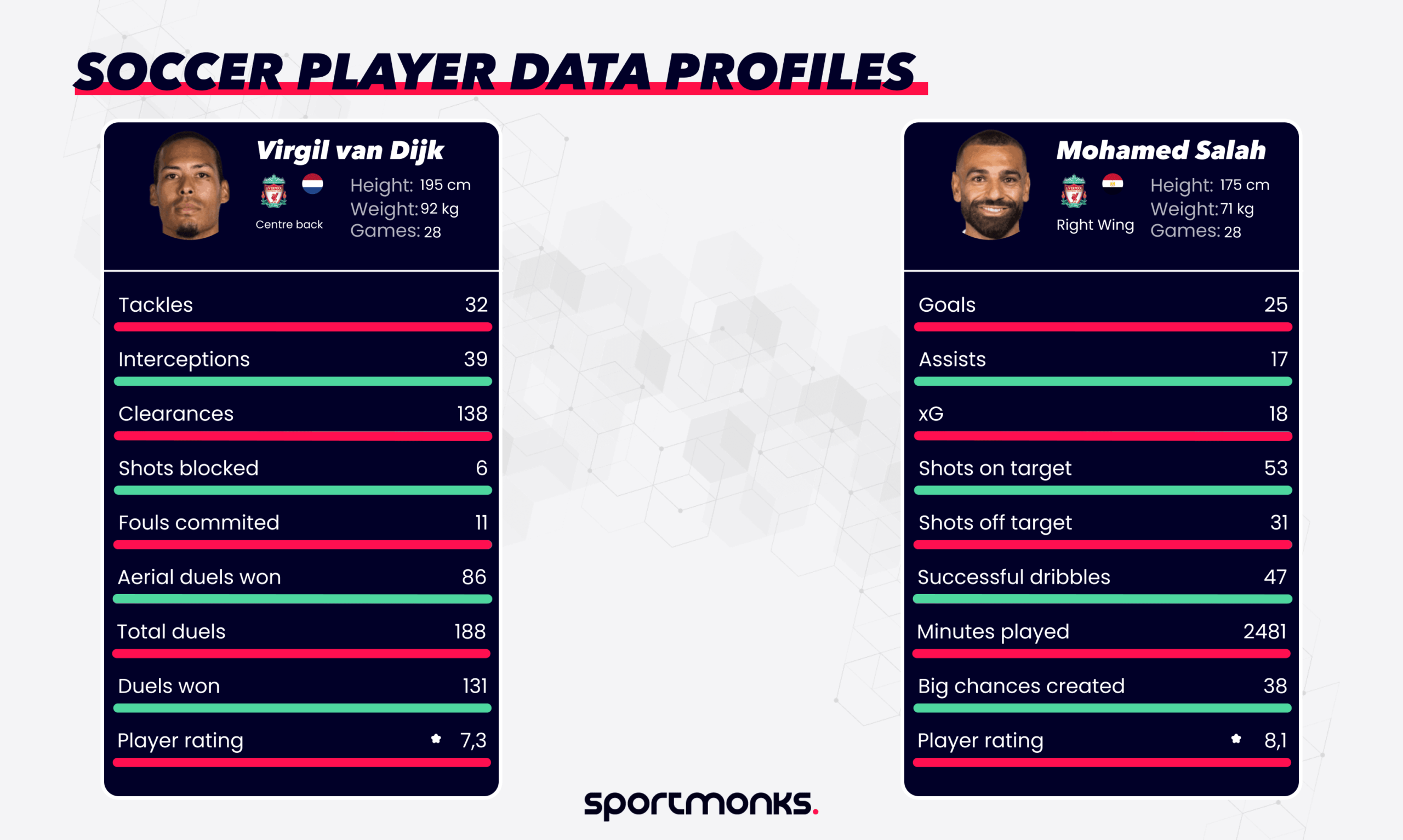
How to Build soccer player data profiles using Sportmonks Football API
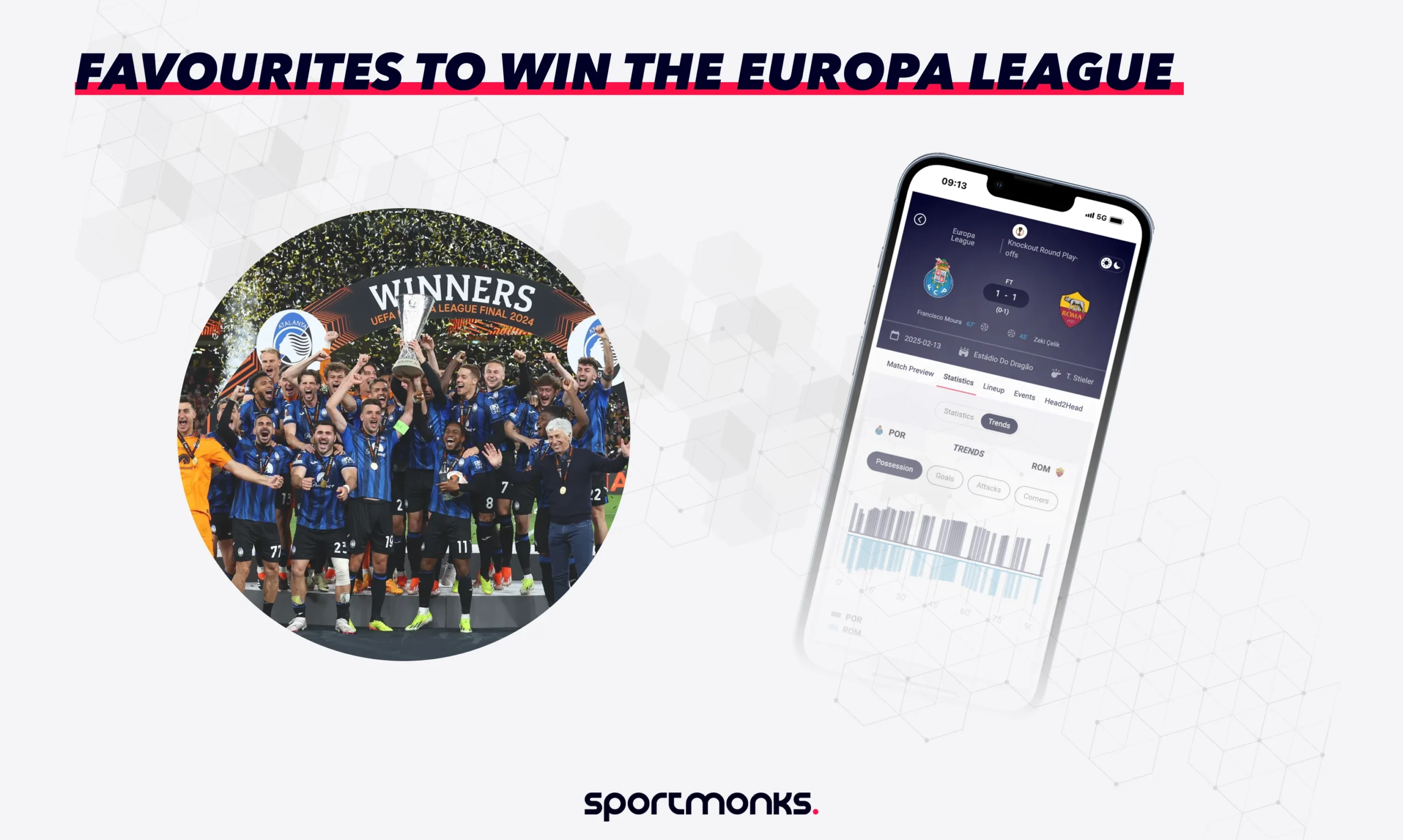
Who is the favourite to become Europa League champions based on Sportmonks data?
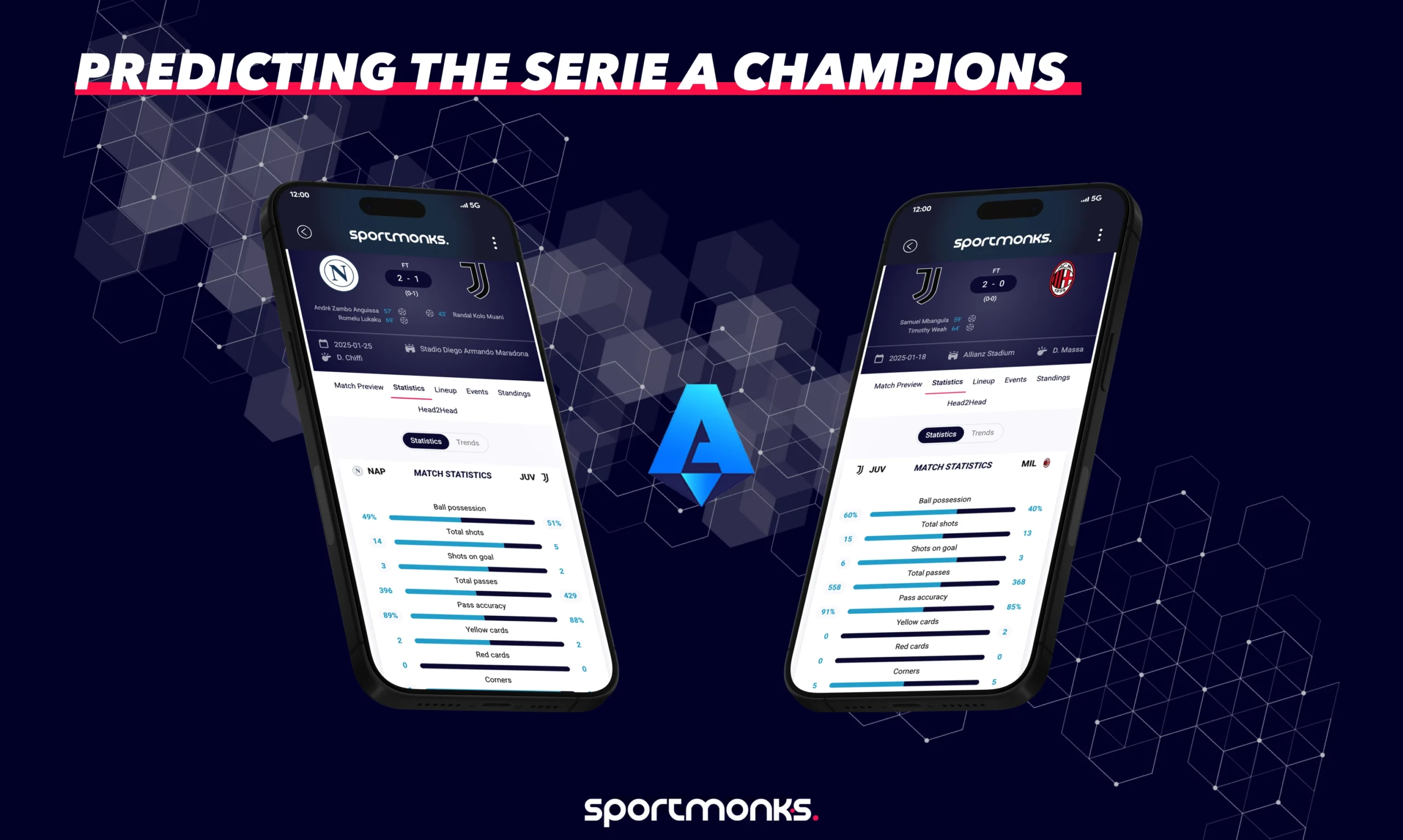
Serie A Predictions: Who is the favourite to become Serie A champions based on sportmonks data?
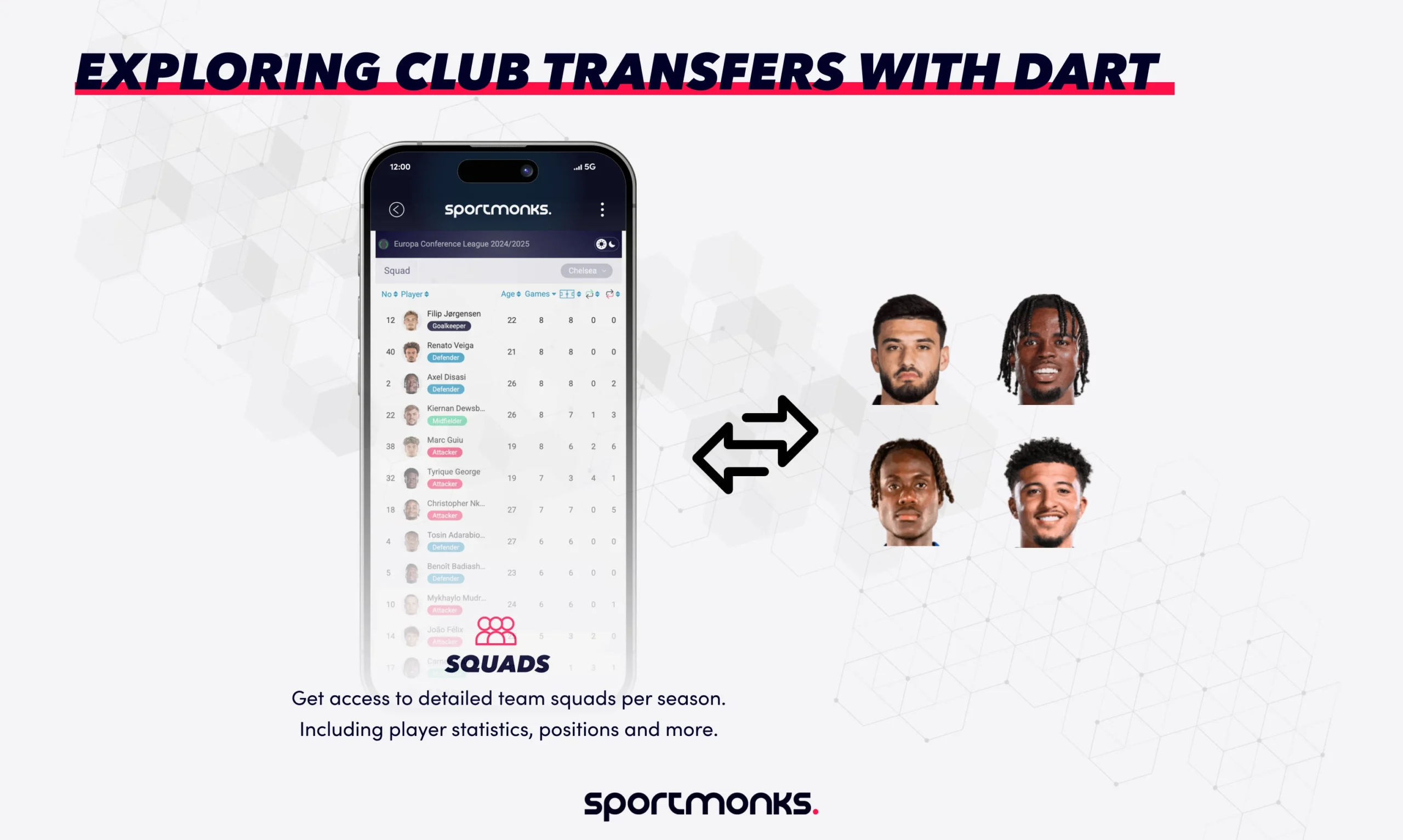
Exploring Club Transfers with Sportmonks’ Football API and DART.

Exploring Top scorers with Sportmonks’ Football API and Crystal
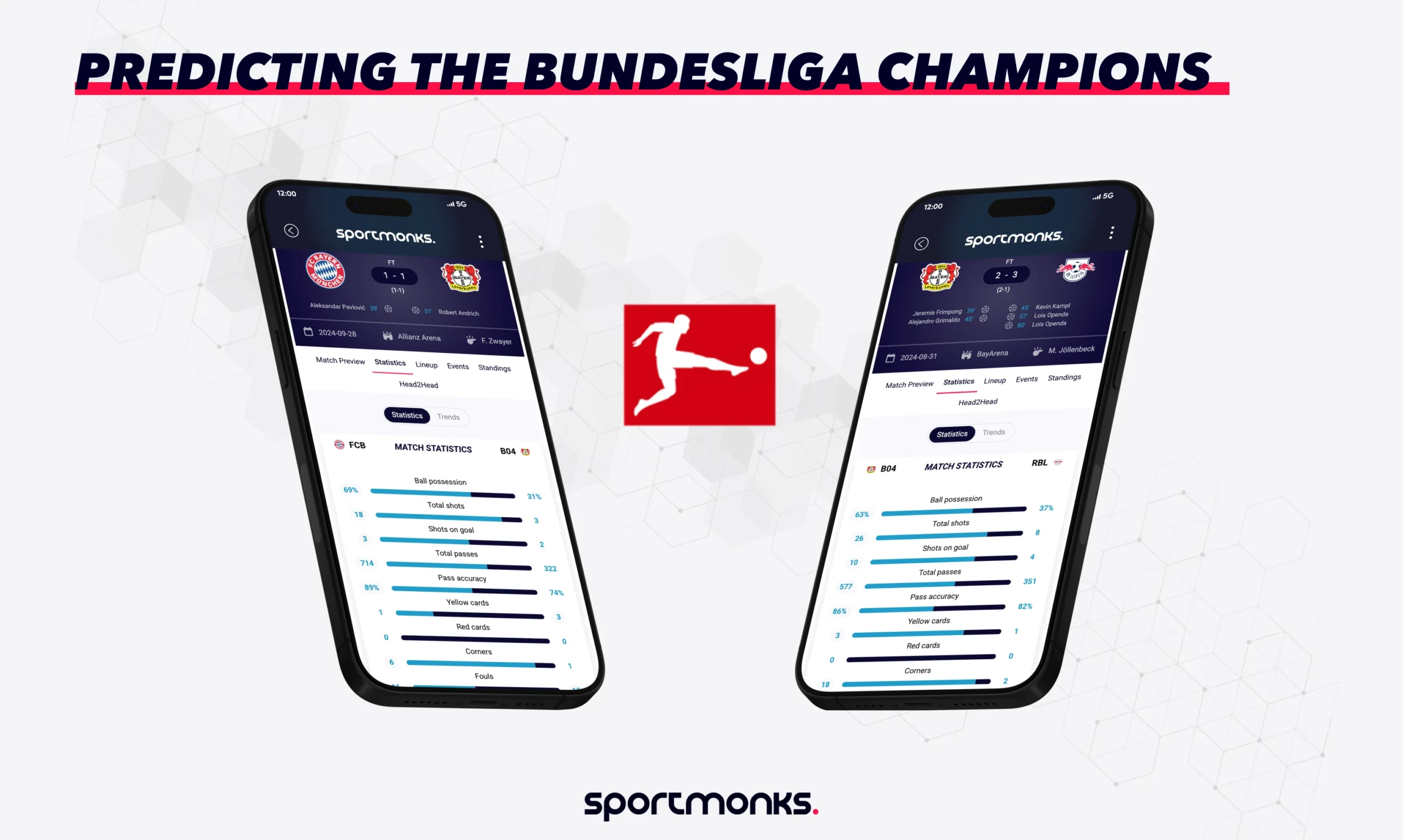
Bundesliga Predictions: Who is the favourite to become Bundesliga champions based on sportmonks data?
